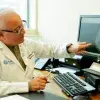What happens if I’ve missed the date to get my second dose of the COVID vaccine? Does the first vaccine have an expiration date? If I got ill, should I still get it?
Infectious disease specialists from TecSalud shared with CONECTA the aspects to consider if you’ve already gotten the first dose of a two-dose vaccine and for some reason you haven’t had the opportunity to get the second.
In Mexico, the vaccines that have a two-dose schedule are: Pfizer, Moderna, AstraZeneca, Sputnik V, Sinovac, and Covaxin.

A single dose already protects you
Dr. Reynaldo Lara, an infectious disease specialist at TecSalud, said that a single dose of a two-dose COVID vaccine does protect you but that it is important to complete the full immunization schedule.
“The vaccines were designed with the idea of generating efficient immunity against the COVID virus. A first dose generates immunity that will provide protection in perhaps 60 to 70% of cases.
“With the application of the second dose, which is like a booster, the vaccine’s efficacy is increased to the published result levels of above 90%. So, yes, it’s very important for people to complete their vaccination schedule,” Lara said.
The first dose doesn’t have an expiration date
People usually get the second dose between 21 and 28 days after getting the first, Dr. Lara pointed out. However, there’s no problem if the interval is longer.
“Ideally, people should get their vaccine shots within the defined schedule. For example, in the case of Moderna, it’s 28 days apart; in the case of Pfizer, it’s 21 days; only AstraZeneca has a longer interval between shots.
“However, there’s information that makes us think there shouldn’t be any problem if it’s delayed a little (application of the second dose). What we’re looking for is a memory response, with cells that will identify segments to generate immunity,” Lara said.

If people have waited days or weeks for the second vaccine shot, they shouldn’t fear a loss of effectiveness or a total lack of protection against the disease, said Dr. Teresa Ramírez, an infectious disease specialist at TecSalud.
“People shouldn’t be afraid that the second dose won’t work as well if they take a little longer to get it. For example, as with the case of the booster, in which we see that the level of protection is recouped, the same occurs with the second dose.
“Even though time has passed, the levels expected for that particular vaccine are attained again. So, the recommendation is to remain calm, and when the opportunity to get it comes around, you shouldn’t forget to do so,” said the doctor.
“There’s information that makes us think there shouldn’t be any problem if it’s delayed a little (application of the second dose).” – Dr. Reynaldo Lara
The second dose raises your level of protection to the maximum
Dr. Ramírez points out that the first dose provides protection of between 55 and 70%. However, just as when you get the full schedule, the level of protection begins to decrease over time.
“That’s why it’s important for people to get the second dose because they haven’t reached the maximum protection that the vaccine can offer. Boosters help maintain levels of protection, but its potential hasn’t been attained yet with a single dose,” said the doctor.

Nor should the process be accelerated
Just as people shouldn’t despair if they haven’t been able to get the vaccine shot, they shouldn’t rush to complete the schedule ahead of time, Dr. Ramirez added.
“No matter what type of technology the vaccines use, the important thing about them is to wait the minimum recommended 3 or 4 weeks because that’s what the body needs to react to the first dose.
“If we apply the two doses over a shorter period, for example, the first dose one week and the second dose the next week, the body won’t have finished generating the immune response hoped for with the first dose,” explained the doctor.
“It’s important that people get the second dose because they haven’t attained the maximum protection that the vaccine can offer.” – Dr. Teresa Ramírez
Follow prevention measures while waiting to get the second dose
To remain calm while you’re waiting for the call for the second dose of the vaccine, Dr. Lara suggests keeping up the prevention measures that have shown to be effective in reducing the infection rate during the pandemic.
“Prior to the vaccines, the closest thing we had as a preventive measure was the face mask; that is, using the mask is like an artificial vaccine because it’s a method that limits infection.
“It’s a health strategy that’s proven effective. So, vaccination is very important, but it isn’t the only measure, and while you wait for the next dose, you should follow the other recommendations to protect yourself, such as social distancing and hand washing,” he added.

If you got sick with COVID, you still need a second dose
Those people who already got the first dose of any of the available vaccines and who caught COVID afterward should wait for the disease to run its course before getting the second dose, Dr. Lara said.
“If people get sick, it’s important for them to first know that even if they haven’t completed the vaccination schedule, that first dose is probably going to give them some protection so they don’t get severely ill.
“The second thing is that once they get over the disease, once they recover and finish their isolation period, they should seek to complete their vaccination schedule,” Dr. Lara said.
If you’ve had an adverse reaction, see your doctor
Dr. Ramírez points out that, although they’re not common, there may be cases in which the first dose can generate an allergy or an adverse reaction.
“The recommendation would be that, if you have a skin reaction, diarrhea, or fever, you need to talk to your primary physician to find out what you can do about it, such as taking preventive medication or following some treatment.
“If it’s a scenario that doesn’t put your life at risk, this is when –with medical supervision– you can decide to follow only the prevention recommendations or apply a vaccine that uses different technology,” added the specialist.
Dr. Ramírez noted that in either case, it’s preferable for patients to approach a health expert to help them with their case rather than deciding on their own not to complete the vaccination schedule.
Dr. Lara also said that if there’s discomfort after the first dose, such as headaches or soreness in the injection site, this is normal, so it shouldn’t be a reason to be cautious or afraid of getting the second dose.
“These effects can be avoided by patients pre-medicating (with paracetamol) before getting the vaccine,” he said.
YOU SHOULD ALSO READ:
AND TO LEARN MORE ABOUT VACCINES:





